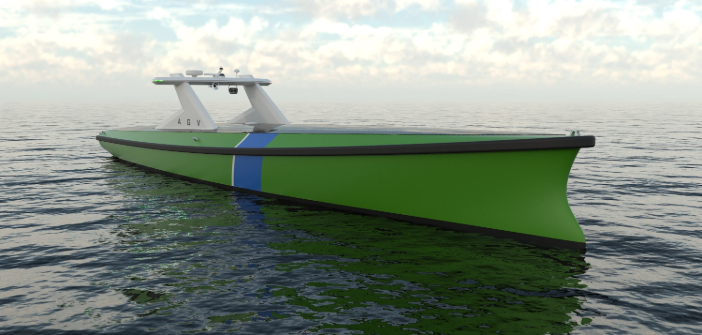A new electric guard vessel for offshore installations is under design by a consortium led by LISA, a community of maritime professionals, and incorporating input from suppliers such as C-Job Naval Architects and eL-Tec Elektrotechniek.
The vessel will operate autonomously and will not require any crew. Therefore, the consortium said, accommodation can be eliminated in the design, meaning the ship will be considerably smaller than existing guard vessels. It noted that the smaller size creates a number of opportunities, such as using batteries rather than generators thanks to reduced propulsion requirements. Additionally, the lower energy consumption and lack of onboard crew leads to lower operational costs.
The consortium said sustainability is key to ensure both the viability and durability of the design. Rolph Hijdra, autonomous research lead at C-Job Naval Architects, said “We are pleased we were able to develop a battery-powered design, ensuring the autonomous guard vessel is free of harmful emissions. Additionally, the ship has solar panels across the top which allows for the continuation of navigation and communications in case the batteries run out of power.
“Contrary to current guard vessels, the AGV will continue to be operational even with rough sea conditions and have minimal underwater noise owing to the smaller size, reduced propulsion requirements and absence of a diesel engine.”
The autonomous guard vessel will recharge its batteries via a charging station which can be moored independently or connected to existing equipment on-site. Depending on the situation, charging could either be via a cable connection to the on-site equipment such as an offshore transformer platform or locally generated using renewable fuels.



